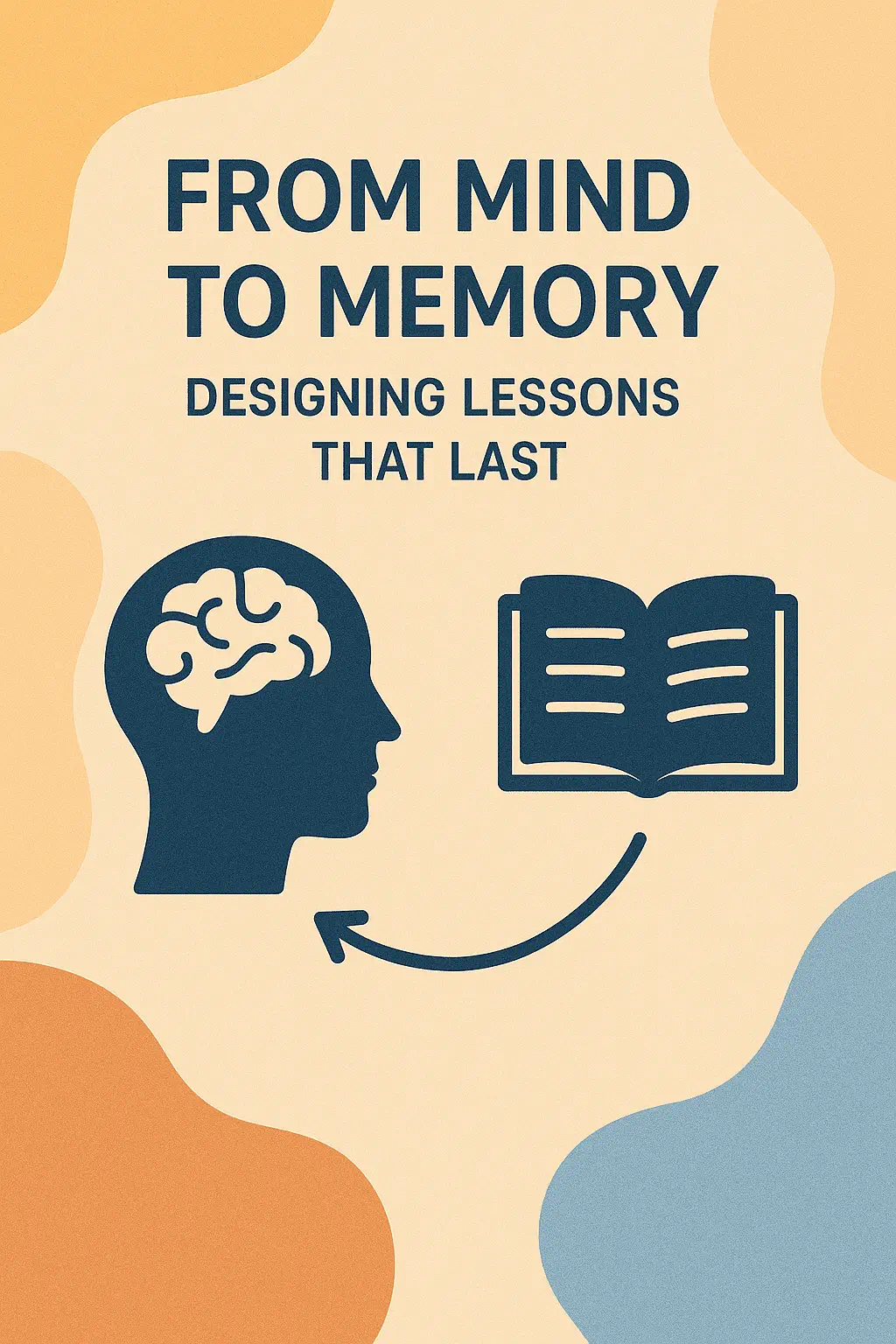
Mind to Memory: Applying Cognitive Science in the Classroom
Design lessons that stick using retrieval practice, spacing and cognitive load principles—tailored for Bangladeshi classrooms.
Why do pupils forget what we’ve taught them? This course unlocks the science of memory so you can design learning that lasts. You’ll explore retrieval practice, spaced repetition and cognitive load theory—decades of research showing clear gains in long-term retention and deeper understanding, even in large, exam-focused Bangladeshi classes.
What to expect
One-day workshop
Discover how memory really works and why active retrieval beats passive review. Experience practical techniques like low-stakes quizzes, “brain dumps”, “two things” reflections and retrieval warm-ups that help pupils remember more between lessons and across terms.
20-hours online learning
Learn how to build spaced-review schedules, interleave topics and reduce cognitive overload in your subject. Design memory-friendly explanations, examples and tasks. Explore simple tools that help pupils revise more effectively at home—not just reread their notes.
Core strategies you will master
- Retrieval practice routines that fit into 5 minutes at the start or end of a lesson.
- Spacing and interleaving to revisit key ideas over time instead of reteaching from scratch.
- Cognitive load–aware instruction that simplifies explanations and reduces unnecessary distractions.
- Memory-focused homework that helps pupils practise recalling, not just copying from the book.
How you will learn — the EBTD Deliberate Practice Model
All EBTD courses use our Deliberate Practice Model — a five-step cycle designed to help teachers successfully change habits in real Bangladeshi classrooms:
DEFINE → MODEL → PRACTISE → REFINE → REFLECT
- DEFINE: choose one small, specific change such as adding a 3-minute retrieval warm-up to the start of two lessons each week.
- MODEL: see clear examples of retrieval routines, spaced reviews and simplified explanations through live demonstrations and short video clips.
- PRACTISE: rehearse question prompts, explanation scripts and “brain dump” routines in short, low-stakes drills with peers.
- REFINE: receive tiny, precise feedback on your wording, timing and transitions, then immediately try again.
- REFLECT: plan how you will build these routines into your next sequence of lessons and note what changed for you and your pupils.
The focus is entirely on what you can control tomorrow in your classroom — small, repeatable routines that gradually make learning stick.
Key questions
- Why do some pupils remember ideas weeks later, while others forget them by the next lesson?
- Do your lessons lean more on re-reading and re-explaining, or on getting pupils to actively retrieve what they know?
- Where in your curriculum do you deliberately space and revisit key knowledge — and where do you rely on last-minute cramming?
- Which explanations, slides or worksheets might overload working memory — and how could you simplify or chunk them?
- What would it look like if your pupils arrived at revision time already remembering more?
How this course will change practice
You’ll leave with a set of simple, repeatable routines that align with how memory actually works. You will know how to:
- use quick retrieval activities at the start and end of lessons without losing teaching time;
- plan spaced reviews of key ideas across weeks and terms so knowledge is revisited before it is forgotten;
- design questions and tasks that strengthen memory rather than just entertain or fill time;
- simplify explanations, examples and slides so pupils can focus on the most important ideas;
- set homework that requires pupils to remember, not just copy, information.
Over time, these changes help pupils become more confident, accurate and fluent. Retrieval practice and spacing strengthen neural connections and improve long-term retention, reducing the need to reteach the same content again and again.
Preparation reading before the course
To get the most from this module, we recommend starting with our two short think-piece blogs on memory and learning:
1. 7 Steps to Make Learning Stick: From Mind to Memory
7 Steps to Make Learning Stick: From Mind to Memory
2. Why Students Forget What They Knew Yesterday: The Hidden Difference Between Performance and Learning
Why Students Forget What They “Knew” Yesterday: The Hidden Difference Between Performance and Learning
These blogs explain why forgetting happens so quickly, why performance during a lesson does not equal true learning, and how cognitive science principles such as retrieval practice, spacing, interleaving and cognitive load can dramatically improve long-term retention — even in large, exam-driven Bangladeshi classrooms.
Reflection prompts
- Retrieval vs. review: Do your lessons mainly use re-explaining and re-reading, or do pupils regularly pull information from memory?
- Spacing vs. cramming: How intentionally do you revisit key ideas over time — and where do you rely on last-minute review?
- Cognitive load check: Which instructions, visuals or worksheets may overload working memory? How could you simplify them?
- Memory habits: What routines already help pupils remember more — and where could you add one new retrieval or spacing routine?
Continue your development
- Teacher Training in Bangladesh (BD)
- Integrated Teacher Development Award
- Tutor Training Programme
- Guide to Memory – Free Teacher Resources
Learn how this module fits within EBTD’s teacher training in Bangladesh (BD).
If you found this useful, join the EBTD newsletter for monthly, research-backed tips, free classroom tools, and updates on our training in Bangladesh—no spam, just what helps. Sign up to the newsletter and please share this blog with colleagues or on your social channels so more teachers can benefit. Together we can improve outcomes and change lives.
